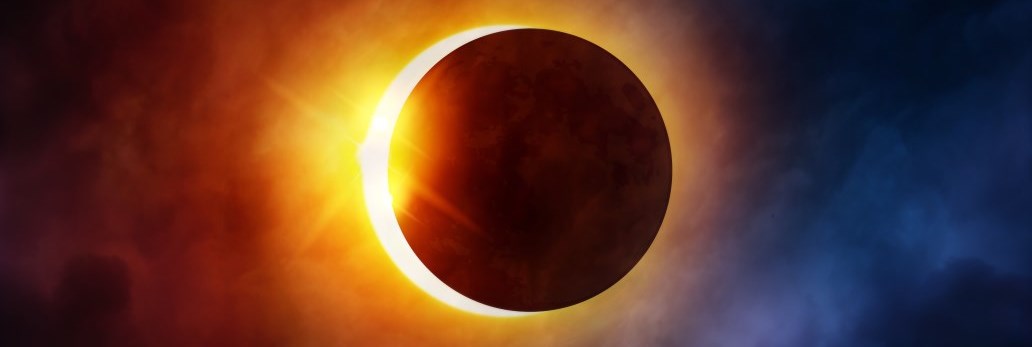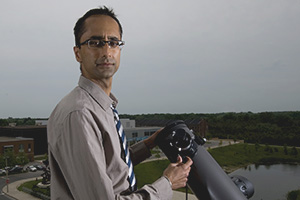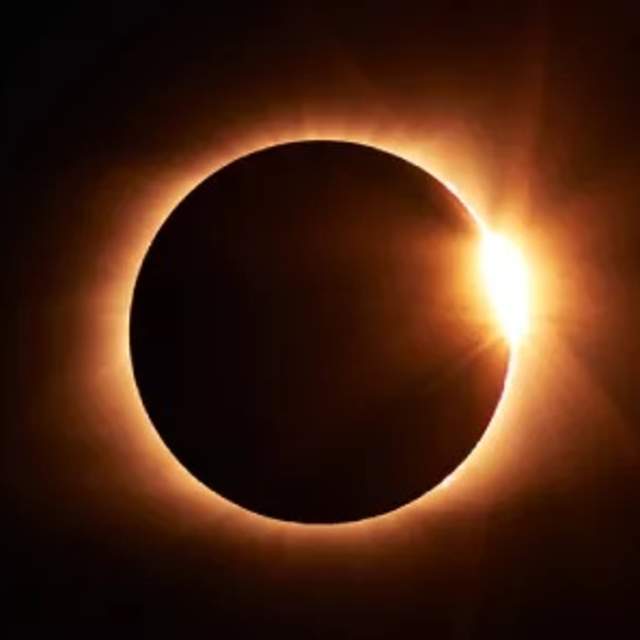Solar eclipse leaves Ontario Tech professor in awe as he discovers ‘something beautiful’
Published April 8, 2024 at 11:29 pm

You would think an astrophysicist, especially one who has been on a lecture tour talking about the total solar eclipse for the past month, would be prepared for what he was about to see.
But you would be wrong, as Ontario Tech professor Rupinder Brar discovered Monday afternoon on an eclipse adventure to the shores of Lake Erie, where he “discovered something beautiful” and learned that it is sometimes best to put away the scientist hat and just “be a child” once more.
“I thought I would be ready; an astronomer like me. But I wasn’t really,” he said on his return to Oshawa from John E. Pearce Provincial Park on Lake Erie, just a bit west of Port Stanley and a couple of hours from the madness at Niagara Falls.
Brar, who gave a talk on the event to a sold-out crowd at the Regent Theatre in downtown Oshawa March 19, was originally intending to beat the crowds and go east to Kingston, which is also on the totality path. But he decided to head the other direction after watching weather patterns and wanting to “get past” the cloudy skies that plagued eclipse watchers in eastern Ontario.

Ontario Tech astronomy and physics professor Rupinder Brar
It was a wise choice as the conditions were perfect to see the once-in-a-lifetime event, he said. “We really felt the depth of shadow,” he said of the darkening of the sky, pre-eclipse. “From about 3 to 3:15 we were in sort of a purple shadow.”
What followed was almost an out-of-body experience for Brar, who teaches astronomy and physics at the university and is an expert on all things eclipse.
“We saw the last little bits of light showing off the jagged bits of the moon until the last pieces of light of the sun were disappearing, one by one until there was just one piece of light left,” he recalled, still moved by the experience.
“And then, totality, and we all took off our glasses. I was in awe.”
Brar described seeing the sun quite literally in a new light – “we saw the cornea” – and thought of reaching for some solar equipment he had brought along to enhance the experience and decided against it. “Don’t be a scientist, just for a second,” he remembered telling himself. “Just enjoy the moment.”
Venus was clearly visible and his group was able to see other planets and stars as they stared at the sun “in a way we’ve never seen before. We couldn’t look away.”
Before he arrived for the event Brar knew it was going to a special moment but he still wasn’t prepared. “The hype is real and it’s getting bigger and bigger every day,” said a week ago. “It’s an experience not comparable with any other astronomical event.”
It’s also something that won’t be seen again in these parts for another 120 years.
“As a scientist, to know what to expect and to still be in awe … it felt like I was discovering something so beautiful,” he said. “I know I should have been trying to understand but I was just trying to appreciate.”
“The scientist in me stopped for a minute and the child in me took over.”










